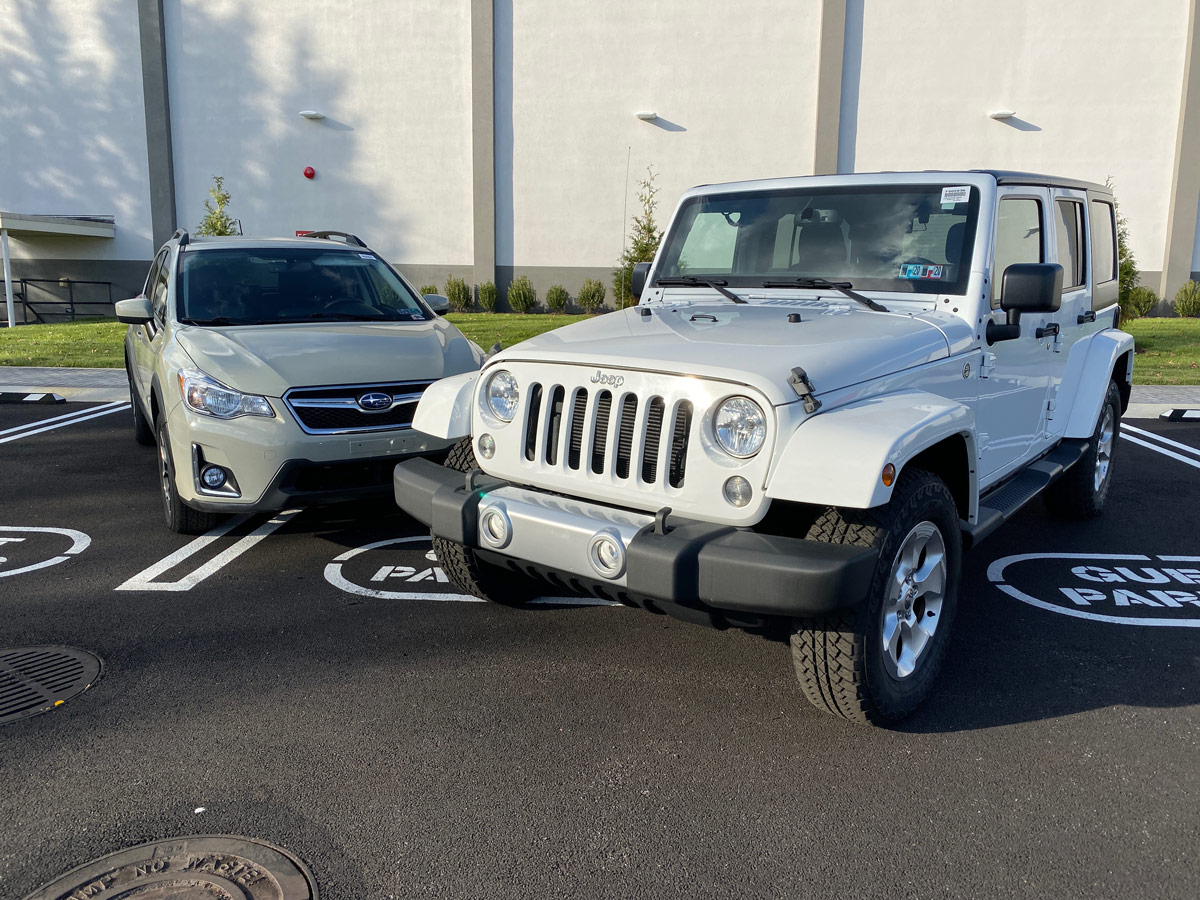Got questions about cars? Joe Malick and Rodney Braun started at CarShop as service technicians years ago, and have worked with cars all their lives. We sat down to get answers that consumers often ask.
I’ve got an all-wheel drive. Is that as good as a 4-wheel drive?
Joe: It depends on what you’re doing. 2WD, AWD, 4WD, first question we ask is what do you want your vehicle to do?
Rodney: Here’s the difference. 4-wheel drive, like a pick-up truck or a full-size SUV, most of them are electronic now. You’ve got a dial on the dash, you flip the switch, you go from two-wheel drive to splitting torque to the front and rear wheels 50/50.
Joe: An all-wheel drive is automatic. You don’t have to turn a knob, you don’t have to shift anything. You have 80% of your power going to the rear, 20% to the front at all times. When the sensor tells your car your wheels are slipping, it’s going to apply torque to the other wheels to get your traction.
Rodney: 4-wheel drives, they also usually have a low range. It’s all about torque and keeping the speed down. You don’t go too fast, but it multiplies the torque of the engine, so it’ll pull itself through two-foot snow drifts, crawl over rocks and obstacles, get out of mud, that kind of stuff. If you’re really into off-roading, you need a 4WD.
Joe: It’s not just the power. People forget it’s also the clearance. An AWD can’t do a lot of things a 4WD can, just because there’s less room for things to pass under the car.
Rodney: There are a few AWD vehicles you can lock into four-wheel drive, so it’s not constantly changing the torque from the front to the rear wheels. Some of the Subarus, for instance, they call it X-Mode. But there are a lot of people, probably most people in my opinion, who never actually use it.
Are two-wheel drives always a bad idea if you’re in a place where it snows?
Joe: Not at all. Again, it depends on how you drive. How much driving do you really do in the wintertime? Do you have a long commute or do you have to travel a lot for work? Are all the roads you travel the ones the snow plows hit early and often, or are you on a side street that sometimes takes days to get clear? If you’re putting 5000 miles a year on your vehicle, you can probably stay with a front wheel drive vehicle, and invest in a good set of true snow tires – like Bridgestone Blizzaks – at least for the front of your vehicle in the wintertime.
Rodney: People don’t know how much difference a good tire can make. You can have an AWD, 4WD with bad tires and you’re going to be all over the road, whereas you can have a 2WD with great snow tires on the front and you’ll be driving right by them.
Joe: Here’s a story. My nephew had a Jeep Grand Cherokee. He father calls me up and says, “Joe, I don’t know what it is, but he’s out there and he’s all over the place skidding.” Well, I knew exactly what it was. The kid had the tire tread down to 2 or 3/32nds of an inch – just barely passing inspection. We put good tires on it, and I haven’t heard a thing since. Moral to this story: even if you’ve got a Jeep, one of the best 4x4s in the world, if you’ve got a street radial tire that’s down to 3/32nds, don’t expect to be living the Jeep commercial.
OK. One more question. 2WD, AWD, 4WD, isn’t there a difference in terms of gas mileage?
Rodney: You probably give up a little gas mileage with an AWD versus a 2WD version of the same vehicle.
Joe: But it’s a lot less than a 4WD vs. a 2WD truck. I’ll bet all the money in Rodney’s wallet right now, the difference between a front-wheel drive and an all-wheel drive medium crossover, like a Honda CRV, the percentage is going to be a lot less than a 4WD full size truck and a 2WD truck.
Rodney: In the truck, you add a lot more components and a lot more weight. You’re putting a big front wheel drive axle in the truck, you’ve got a big transfer case, you’ve got a front drive shaft that’s really big, whereas in the AWD units, they’re already front wheel drive, you’ve got a small little transfer case on the transmission, some kind of smaller rear drive shaft and they put differentials in the back, rear axles that are minimal additional weight.
Joe: It’s going to be less of a decrease in gas mileage in all AWD midsize vehicles vs. a full-size truck or SUV.
Got a question for the folks at CarShop? Contact us and we’ll try to answer your question in a subsequent edition of CarShop Shop Talk.

